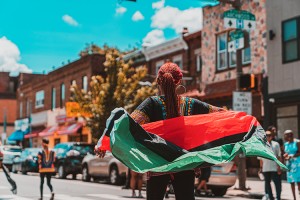National Disabilities Month
Thursday, July 27th, 2023July is National Disabilities Month. In July 1990, the Americans with Disabilities Act was passed. That was 33 years ago! The Americans with Disabilities Act, often called the ADA, is a United States law that forbids discrimination based on physical or mental disabilities. The Centers for Disease Control and Prevention states 61 million American adults have a disability affecting their daily lives. That is 1 in 4 American adults, or 27 percent of the country!
The ADA seeks to protect individuals with disabilities that significantly limit one or more major life activities. Examples of such disabilities include blindness, deafness, deformity, muscular and nervous disorders, paralysis, and loss of limbs. The primary goal of the ADA is to ensure that people with disabilities are not denied basic rights and have an opportunity to lead happy, fulfilling lives.
The first right protected by the ADA is the freedom to seek employment. The law bans discrimination in hiring, promotion, and pay. It also requires that employers make efforts to accommodate the workplace needs and limitations of employees with disabilities.
A second section of the ADA states that people with disabilities must have equal opportunities to benefit from all government-run programs, services, and activities. This provision requires many public buildings to have wheelchair-accessible entrances and ramps. It also requires government organizations to make special efforts to communicate with people who have hearing, vision, or speech disabilities.
Other issues addressed by the ADA include the accessibility of buses, trains, hotels, movie theaters, restaurants, and stores. Many transit services and other establishments must provide ramps or lifts for people in wheelchairs, and signs in braille for customers who are blind. The act also requires telephone companies to provide telephone relay services for people with speech or hearing disabilities.
If there is an issue with ADA compliance, a victim of employer discrimination can file a complaint with the Equal Employment Opportunity Commission, which will take the case to court. The U.S. Department of Justice handles other complaints of discrimination under the ADA.
The National Council on Disability, an independent agency of the federal government, developed the ADA in the mid-1980′s, and Congress passed it in 1990. In 2008, Congress expanded the ADA’s protections to people who can compensate for their disabilities by the use of medication, medical devices, or prosthetics. Earlier decisions by the Supreme Court of the United States had limited the scope of the act’s protections. However, for 33 years, Americans with disabilities have been protected by the ADA.








